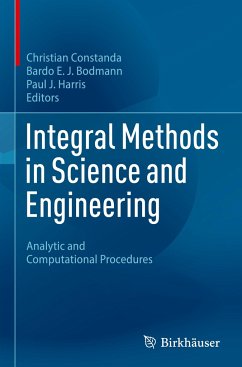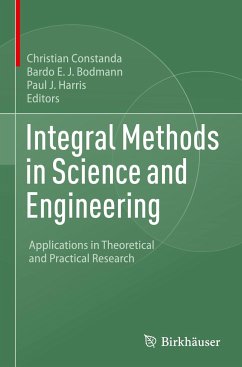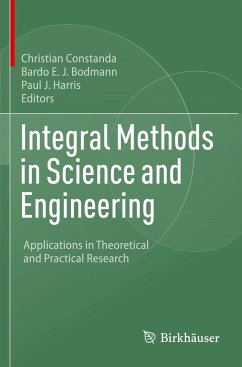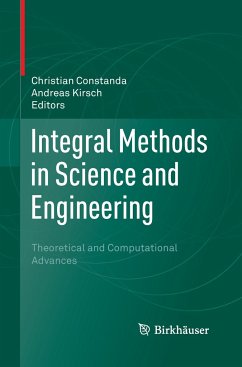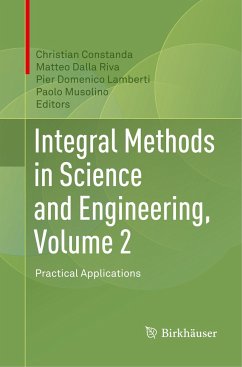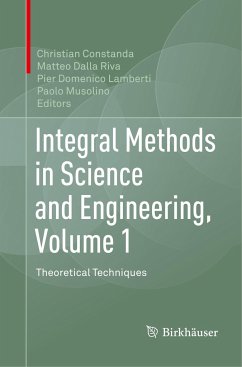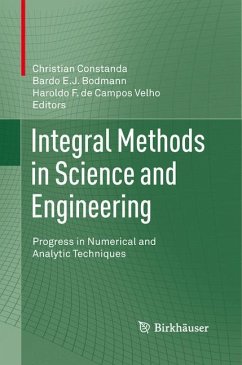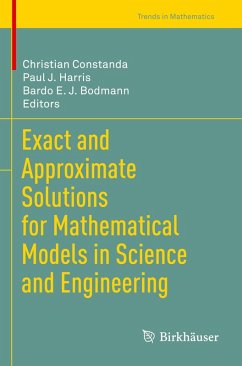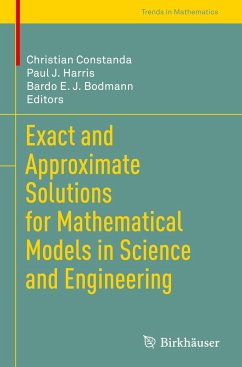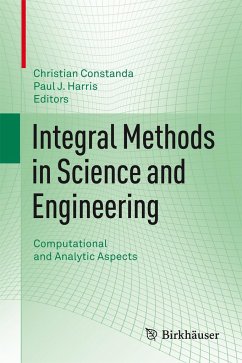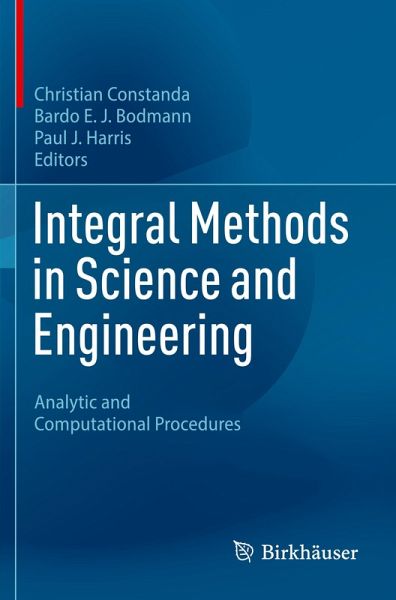
Integral Methods in Science and Engineering
Analytic and Computational Procedures
Herausgegeben: Constanda, Christian; Bodmann, Bardo E.J.; Harris, Paul J.
Versandkostenfrei!
Versandfertig in 6-10 Tagen
166,99 €
inkl. MwSt.

PAYBACK Punkte
83 °P sammeln!
This volume contains a collection of articles on state-of-the-art developments in the construction of theoretical integral techniques and their application to specific problems in science and engineering. Chapters in this book are based on talks given at the Seventeenth International Conference on Integral Methods in Science and Engineering, held virtually in July 2022, and are written by internationally recognized researchers. This collection will be of interest to researchers in applied mathematics, physics, and mechanical, electrical, and petroleum engineering, as well as graduate students ...
This volume contains a collection of articles on state-of-the-art developments in the construction of theoretical integral techniques and their application to specific problems in science and engineering. Chapters in this book are based on talks given at the Seventeenth International Conference on Integral Methods in Science and Engineering, held virtually in July 2022, and are written by internationally recognized researchers. This collection will be of interest to researchers in applied mathematics, physics, and mechanical, electrical, and petroleum engineering, as well as graduate students in these disciplines and other professionals for whom integration is an essential working tool.



